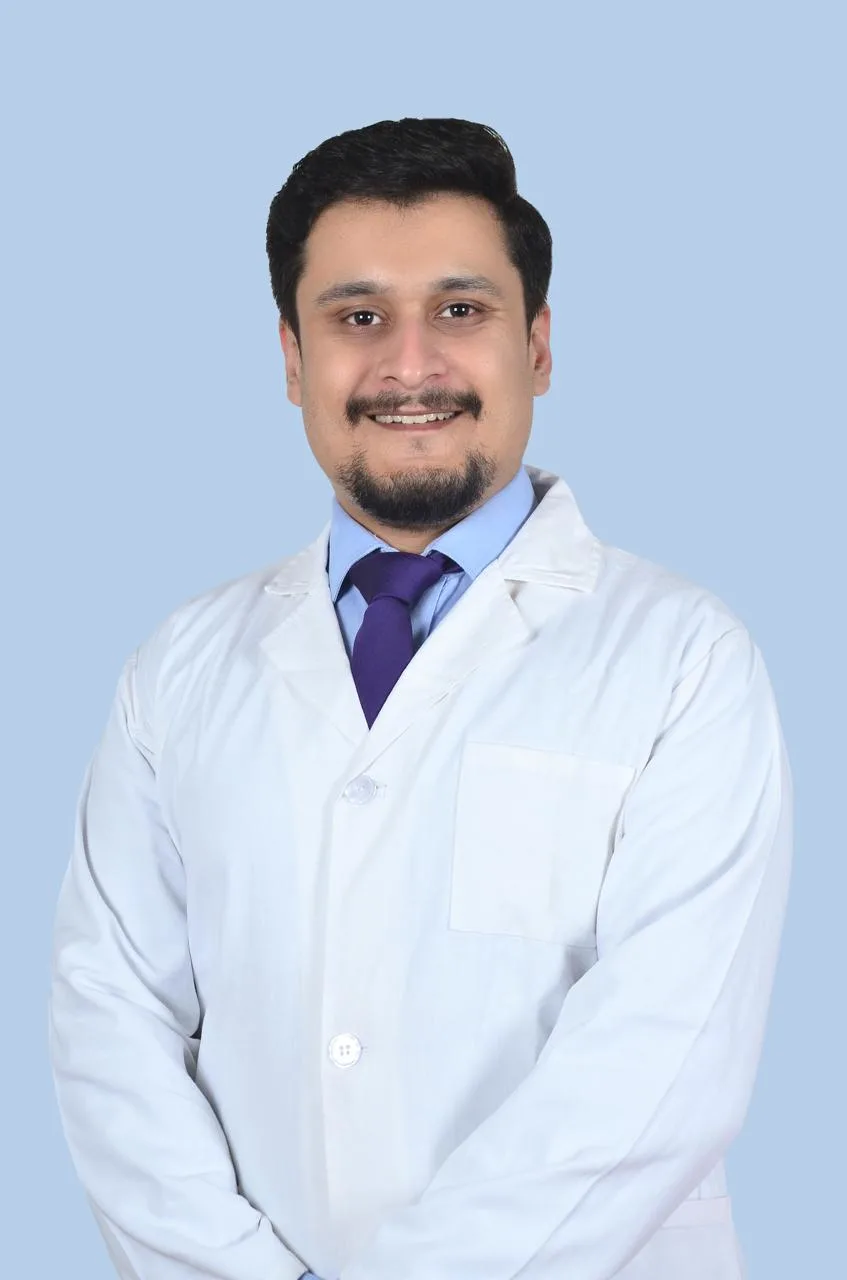Clinically Proven Care, Trusted by Thousands

What Makes Our Treatment for Depression Better?
Personalised & continuous treatment
Our programs are tailor-made for what you need – emotionally, psychologically, and biologically. And we help you monitor and track your progress constantly, so you are always supported and informed.
Real-time collaboration with medical staff
Since all BetterPlace clinics operate within hospitals, our elite team of mental health experts are able to collaborate in real-time with doctors and physicians, giving you a more seamless treatment experience.
Holistic & integrated care
Our approach goes beyond medication and therapy. We build multi-modal care plans that include various therapeutic treatments, lifestyle interventions & support services for long-term recovery.
Evidence-based & tech-focused
To give you an accurate and reliable diagnosis, we equip our doctors with the most advanced tools available, and incorporate the latest evidence-based treatments from around the world.
Our Experts for Comprehensive Depression Treatment

Dr. Akul Gupta
Consultant Psychiatrist
Therapy Mode Online, In-person
Languages Hindi, English

Dr. Siddharth Sethi
Consultant Psychiatrist
Therapy Mode Online, In-person
Languages English, Hindi, Marathi

Ms. Lovleena Sharma
Clinical Psychologist
Therapy Mode Online, In-person
Languages Hindi, English

Ms. Ayushi Paul
Clinical Psychologist
Therapy Mode Online, In-person
Languages Hindi, English, Bengali

Ms. Sulagna Mondal
Clinical Psychologist
Therapy Mode Online, In-person
Languages Hindi, English, Bengali

Dr. Sunil Mittal
Senior Consultant Psychiatrist
Therapy Mode Online, In-person
Languages Hindi, English

Ms. Mitali Srivastava
Senior Clinical Psychologist
Therapy Mode Online, In-person
Languages Hindi, English
Compassionate Care from Trusted Psychiatrists
Experts at BetterPlace are highly trained mental health professionals who have provided treatment for psychiatry and have successfully treated over 50,000 patients with a range of conditions.
- Agoraphobia
- Alcohol Use Disorder
- Alzheimer’s disease
- Anorexia
- Anxiety and panic attacks
- Anxiety Disorders
- Arachnophobia
- ADHD
- Autism Spectrum Disorder (ASD)
- Binge Eating Disorder
- Bipolar Disorder
- Body Dysmorphic Disorder
- Bulimia Nervosa
- Claustrophobia
- Depression
- Dissociative Disorders
- Gambling Disorder
- Gender Dysphoria
- Hoarding Disorder
- Insomnia
- Mood Disorders
- OCD
- Panic Disorder
- Personality Disorders
- PTSD
- Postpartum Depression
- Schizoaffective Disorder
- Schizophrenia
- Social Anxiety Disorder
- Sleep Disorders
Visiting BetterPlace for Depression Treatment? Here’s What to Expect
When visiting BetterPlace, you can expect a welcoming environment where there is 0% judgment.

Detailed initial session (90 min)
Meet with both a psychologist and a psychiatrist
Comprehensive testing
Get an accurate understanding of your mental health
Treatment phase (3-8 Weeks)
Get a personalised treatment plan
Long-Term Support
Get ongoing care with regular follow-ups
Transformation Stories at BetterPlace!
I was at rock bottom. Now I’m not. I was feeling depressed and didn’t know what to do, so I visited BetterPlace and they helped me. Thank you.
Depression felt like an endless tunnel with no way out. But from my first session at BetterPlace, I felt heard and understood. Dr. Akul and my therapist Ayushi were compassionate in their approach and guided me through every step of the way. They gave me the strength to keep moving forward.
My daughter was diagnosed with depression at just 13, and we tried a bunch of different doctors before finally finding the right one. Now she’s 20 and doing really well. She’s super comfortable with Dr. Akul and her therapist, and I’m happy because I get regular updates and can track her progress in real-time.
My brother has had depression for over 4 years and we tried so many treatments without any improvements. At BetterPlace I found out about rTMS which can help if other treatments don’t work and that has been like a miracle. Obviously I was scared initially because there was a machine but it literally was so gentle and relaxing my brother was so happy. Dr Akul has made my brother feel like himself again and he’s finally active and lively nowadays.
I used to think therapy was nothing, just you go and talk. I thought I could talk at home also? But then when my wife passed on, I fell into deep depression. She was my everything, my closest companion and at the age of 72 it is harder to live alone. Thankfully after meeting with Dr. Akul, I was able to feel much better quickly. His medicines worked and did wonders.
Didn’t think talking about my feelings wud actually help, ngl. But BetterPlace proved me wrong. It’s been 4 months since I started treatment n I’m finally starting to feel like myself again. I’m not saying I’m cured or anything, but life doesn’t feel as heavy anymore. Thanks, Dr Akul. You’re a lifesaver.
Meet Our Experts for Depression Treatment Today!
Visit us or book an online consultation
BetterPlace, East of Kailash
At National Heart InstituteFirst Floor, Annexe Building D Block, East of Kailash, New Delhi
BetterPlace, Gurugram
At Neelkanth HospitalGround floor, 1 Main Mehrauli-Gurgaon Road
DLF Phase 3, Gurugram
Best Depression Treatment at BetterPlace
What is Depression?
Depression is a serious mental health condition that affects millions of people globally, impacting their thoughts, emotions, physical health, and daily life. It is characterised by persistent feelings of sadness, emptiness, anxiety, or a combination of these. These feelings are often accompanied by a loss of interest in activities and a lack of motivation.
Depression often stems from a complex interaction of factors, including genetics, medical conditions, life events, and biochemical imbalances. Depression treatment focuses on addressing these underlying causes through therapy, medication, or lifestyle changes.
Types of Depression
Major Depressive Disorder
Also known as clinical depression, Major Depressive Disorder (MDD) is a type of depression that is characterised by long periods of persistently feeling sad, irritated, angry, anxious, lower sexual drive, lack of motivation, lowered pleasure in activities etc. Treatment for depression in such cases often includes therapy, medication, or a combination of both to help manage symptoms effectively.
Dysthymic Depression Need
Dysthymia, or Persistent Depressive Disorder is identified by a depressed mood that lasts for at least two years in adults, and at least one year in children/adolescents. This mood is present for the majority of the day.
Bipolar Disorder
Bipolar Disorder is a mental health condition that causes extreme mood swings and long periods of manic and depressive episodes. Each of these episodes can last for a few days up to weeks at a time.
Cyclothymic Disorder
Cyclothymic Disorder is diagnosed when adults experience at least two years or children/adolescents experience at least one year of both hypomanic and depressive symptoms but don’t meet the full criteria for an episode of mania, hypomania, or major depression.
Peripartum Onset Need
Peripartum Onset is a part of Major Depressive Disorder that is experienced by women within four weeks after child birth. It is followed by feelings of sadness, hopelessness, worthlessness, or guilt.
Seasonal Affective Disorder
Seasonal Affective Disorder is a type of depression that happens during the seasons of fall or winter. It is common in people who live in colder regions, especially where sunlight is available for fewer hours during the day.
Causes of Depression
Depression is caused by a complex combination of psychological, biological and social factors. Some of these factors include:
- Brain Chemistry : Depression can be caused by functional changes in neurotransmitters in the brain, which are chemicals responsible for communication between the different cells. These neurotransmitters play a vital role in regulating mood.
- Genetics : Family history is a major contributing factor to the development of depression. Individuals with such cases inherit unique combinations of genetics that make them predisposed to this condition.
- Stressful Life Events : Traumatic events such as the death of a loved one, physical or emotional abuse, or experiencing loss due to a natural disaster can trigger depression. These life events can start a cycle of negative thought patterns that affect thinking and functioning.
- Medical Conditions : Neurological conditions like Alzheimer’s disease, and Parkinson’s disease; Endocrine conditions like diabetes or thyroid disorders; Metabolic conditions like Hypercalcemia; HIV, and cancer can all cause depression.
- Medication : Certain medications can cause or worsen the symptoms of depression. Everyone’s biochemistry is different and sometimes medication for unrelated pre-existing conditions can potentially cause depression as a side effect.
Treatment for Depression
Psychotherapy
Also known as talk therapy, Psychotherapy is a safe, supportive space to share your thoughts, feelings, and experiences with a trained professional. The therapist explores these experiences and offers tools to help you navigate and overcome challenges, making it an effective therapy for depression and other mental health concerns.
Medication
Mood stabilisers and stimulants are a category of medication that helps in the treatment of depression. For optimal results, medication is usually paired with therapy for depression.
Brain Stimulation Therapy
Techniques like Repetitive Transcranial Magnetic Stimulation (rTMS), Intermittent Theta-Burst Stimulation (iTBS), Continuous and Intermittent Theta Burst Stimulation (CTBS) etc. are non-invasive brain stimulation therapies, prescribed by a psychiatrist, that target specific areas of the brain to either stimulate or inhibit neuronal activity.
Alternative treatment
Techniques like yoga, exercise, medication, guided imagery etc. are a part of alternative medicine that don’t come under standard Western practices. These techniques focus on your mind, body, diet, and general lifestyle improvements.
Cost of Treatment of Depression at BetterPlace Health
Your first appointment will cost INR 2,000. To get started, book a consultation with our professionals to discover how BetterPlace and our depression treatment centers can support you and your loved ones with top-quality care.
The cost and duration of your depression treatment will vary depending on the frequency of visits, the recommended treatment plan, and the medication required.
BetterPlace provides cost-effective end-to-end psychiatry care for you and your loved ones. Our focus is to quicken and shorten your recovery so you get better, faster. We make sure you receive the best-in-class treatment for your illness while keeping the costs in check.
FAQs About Depression Treatment Care
Depression treatment in Delhi includes Depression therapy, medication, and lifestyle changes. You can opt for counselling or psychotherapy, such as cognitive behavioural therapy (CBT), to help manage negative thoughts. Psychiatrists may prescribe medication if needed. Many clinics offer a combination of both for effective depression treatment.
Depression is a common mental health condition, affecting approximately 300 million people across the world. It’s important to know that you are not alone in your struggle.
Persistent sadness or emptiness, loss of interest or pleasure, Irritability, anger, feelings of worthlessness, guilt, thoughts of death or suicide, anxiety, restlessness, fatigue, low energy etc are all symptoms of depression.
Depression is diagnosed by a licensed healthcare professional like a psychiatrist, clinical psychologist, or primary care physician. The healthcare professional will prepare a case history, where they enquire about your demographic details, chief complaints, lifestyle, daily habits, etc. They may prescribe additional assessments to get a better understanding of your case. Through the collected data, they will diagnose you appropriately and suggest treatment methods, which may include therapy for depression, medication, or a combination of both.
While depression can’t always be fully prevented, there are steps you can take to reduce the risk of developing the condition. Maintaining a healthy lifestyle with regular physical activity, a balanced diet, and adequate sleep can support mental well-being. Strong social connections, mindfulness, and relaxation techniques can further be beneficial. If you have certain genetic predispositions towards depression, regular health check-ins with your doctor and engaging in therapy for depression can help catch symptoms early on and provide effective support.
You should visit a mental health professional if you experience persistent feelings of sadness, hopelessness, or a lack of interest in activities for more than two weeks. They can guide you towards the right depression treatment for you. Additionally, keep a track of your sleeping habits, energy levels, appetite, and attention span as these things can indicate a sign of depression.








